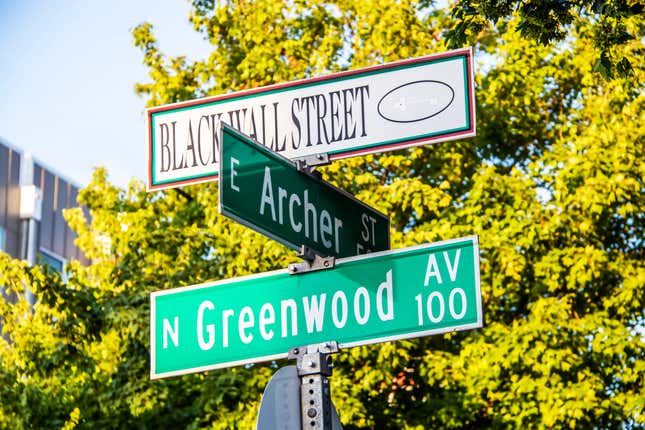
100 years after the Tulsa Race Riots left hundreds of Black bodies scattered and the thriving entrepreneurial district of Black Wall Street burned to the ground, a new chapter is being written by those most connected to its legacy. Black Tech Street, founded by Tyrance Billingsley II, is part of a new global technological hub for Black entrepreneurs in the city of Tulsa, carrying a heavy and heated torch.
“What could Black Wall Street have been, had it been supported and not destroyed?“ Billingsley asks 3BL CSRWire reporters. “When I thought about the level of tenacity that it took for these entrepreneurs to build these incredible businesses during Jim Crow, it really reminded me a lot of the tech industry.”
As the direct descendant of those who first built the original Black Wall Street, Billingsley feels a personal responsibility to fulfill this mission. But he does not chip away at the block alone. In partnership with innovation company SecondMuse, Black Tech Street is able to facilitate investment in Black start-ups, encourage large tech companies to open up hubs in the city and hire Black workers, as well as provide resources to Black entrepreneurs to build their businesses. Other groups in partnership with the organization include Build in Tulsa, which is an accelerator network composed of ACT Tulsa, Techstars, and Lightship Foundation.
“This is a really collaborative effort among the city, local organizations such as our regional chamber, and entrepreneurs,” says Arthur Johnson, senior vice president of economic development at the Tulsa Regional Chamber of Commerce. “I’ve never seen this kind of intentionality around not only developing Black-owned businesses, but also Black tech talent.”
Build in Tulsa has one primary goal, and that’s to close the racial wealth gap in Tulsa and beyond. “We want to build multi-generational wealth, and the fact of the matter is, the fastest tool to grow wealth in this country is tech,” says Ashli Sims, managing director of the org.
What we know is that advancements in technology over the past 30 years are responsible for the majority of wealth creation during that time. What we also know is that Black entrepreneurs and creatives have been grossly excluded and underrepresented throughout the industry, leaving us with slim chances of ever sharing in that wealth. According to a 2022 report provided by the Kapor Center and the NAACP, while 13% of American citizens are Black, only 3% of them make up players in the tech field. But along with cities like Atlanta, Charlotte, Cincinnati, and Birmingham, Tulsa is making efforts to change this by attracting major tech businesses and investing in Black entrepreneurs, all while giving a boost to their own economy.
“Tulsa’s history makes us more poised than other places to have a significant conversation about lack of access for Black entrepreneurs and disparity around venture capital dollars,” says Sims.
Black Tech Street and its collaborators are not just investing in the city’s entrepreneurs, but in its students and teachers too. “Technology has become core to so many different industries, and that’s only going to accelerate,” says Johnson. “The skill set is shifting so that you may not necessarily need a four-year degree in computer science, but you do need some level of technical know-how, and that education has to start early.”
This year a partnership between HP and the organization Digital Promise, the HP Teaching Fellows Program was launched, aiming to help educators of North Tulsa utilize technology in innovative ways.
For Tulsa and the legacy of Black Wall Street, all roads lead to gold, or at least accessible capital for Black entrepreneurs.
“We’re transforming the narrative of what a tech entrepreneur looks like and of who can succeed in tech,” Billingsley says. “You have to be able to look in the mirror and say, ‘I’m what a tech CEO looks like,’ or ‘I’m what the founder of a billion-dollar company could look like.’”

